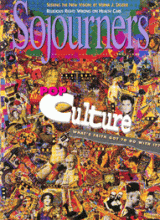Thirty years after Mississippi Freedom Summer, 3,000 international observers return from El Salvador’s postwar "democratic elections." Thirty years after voter registration workers Goodman, Schwerner, and Chaney were killed in our country, we are again called to stand with people long insulted by a history of "democratic" mirages as they dare to build free and fair processes. North Americans in solidarity with these struggles must look beyond a "sitcom" approach to history and reject the temptation to see them as separate episodes without past or future.
Two days after the Salvadoran elections, The New York Times declared "victory" for ARENA, the well-established party tied to death squads. "The left," they stated, "is given scant hope." Most of us who were observers, who watched 10 hours of voter lines creep along more slowly than our sweat, were resigned to accept their verdict. Mourning the popular movement’s loss, we trudged into the Center for International Solidarity.
"Whatever we win is victory, no matter what it is," declared Mercedes Peña, an FMLN representative. "Before we had no FMLN mayors or deputies. Now we have 20 in the legislative assembly."
Other speakers emphasized that to move in 16 years from being a persecuted social movement running from gunfire in the hills to participation in elections is a great success. Pro-claimed one, "The task ahead is to celebrate what we’ve won."
Celebration does not mean rest. Salvadorans are careful to distinguish between trusting their power together and trusting the electoral process. The United Nations estimates that 25,000 registered voters were not allowed to vote at sites and 300,000 eligible voters were denied voting cards. Like our history of poll taxes and literacy tests, the Salvadoran voting process continues disproportionately to exclude the poor.
Read the Full Article
